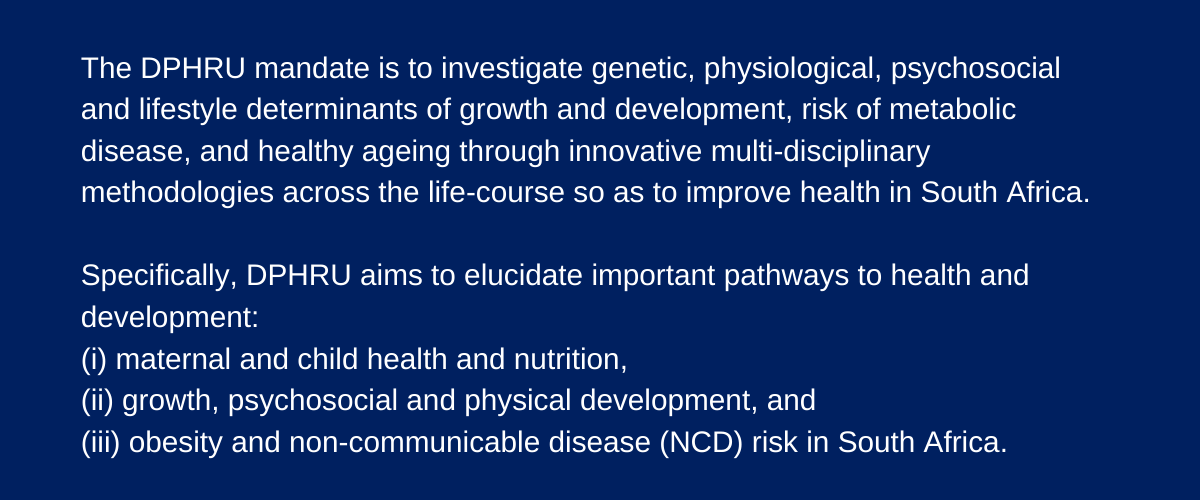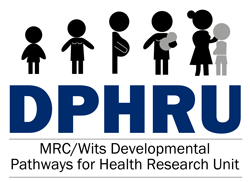Research mandate

Research approach
DPHRU is leading the science of Developmental Origins of Health and Disease (DOHaD) in South Africa, is building capacity in this field across the African continent, and is aligned with the International Society of DOHaD and scientists around the world.
From both scientific research and policy perspectives, confronting the developmental origins of disparities in physical and psychological development early in life and through the life-course, and its impact on NCDs, is an important strategy to ensuring healthy ageing for all South Africans.
Our research approach is embedded in a life-course health and development model.

The value of this model is that it recognises the complex and dynamic interaction between the environment (individual-family-community-society-policy) and biology (physiological-neurological systems) that shapes development and health trajectories across the life-course and intergenerationally.
Our approach acknowledges that life-course pathways are informed by endogenous characteristics (i.e., each individual’s adaptability, plasticity, resilience, and reactivity) interacting with exogenous factors (i.e., external physical and psychological environments) embedded in societal context (i.e., shaped by historical time and the place where they live) which both provide opportunities and impose constraints.
We recognise that there are multiple, complex, non-linear, interrelated influences on human development informed by the timing of exposures and developmental opportunities. These include latent effects which result from exposures in developmentally sensitive periods (i.e., preconception, pregnancy and early life) but whose influence on health is only evidenced in later life, and pathway effects which establish and maintain certain health and developmental trajectories. These latent and pathway effects combine and accumulate over time and manifest in health as cumulative effects which determine health across generations.
Importantly, this model frames DPHRU’s increasing focus on interventions contextualised by an understanding that all human development involves agency (i.e., life choices, behaviours and actions) and that carefully developed, sensitively-timed interventions which target common pathways and modifiable mechanisms have the potential to disrupt the consequences of current and past adversities on the health of both contemporary and future generations of South Africans.


